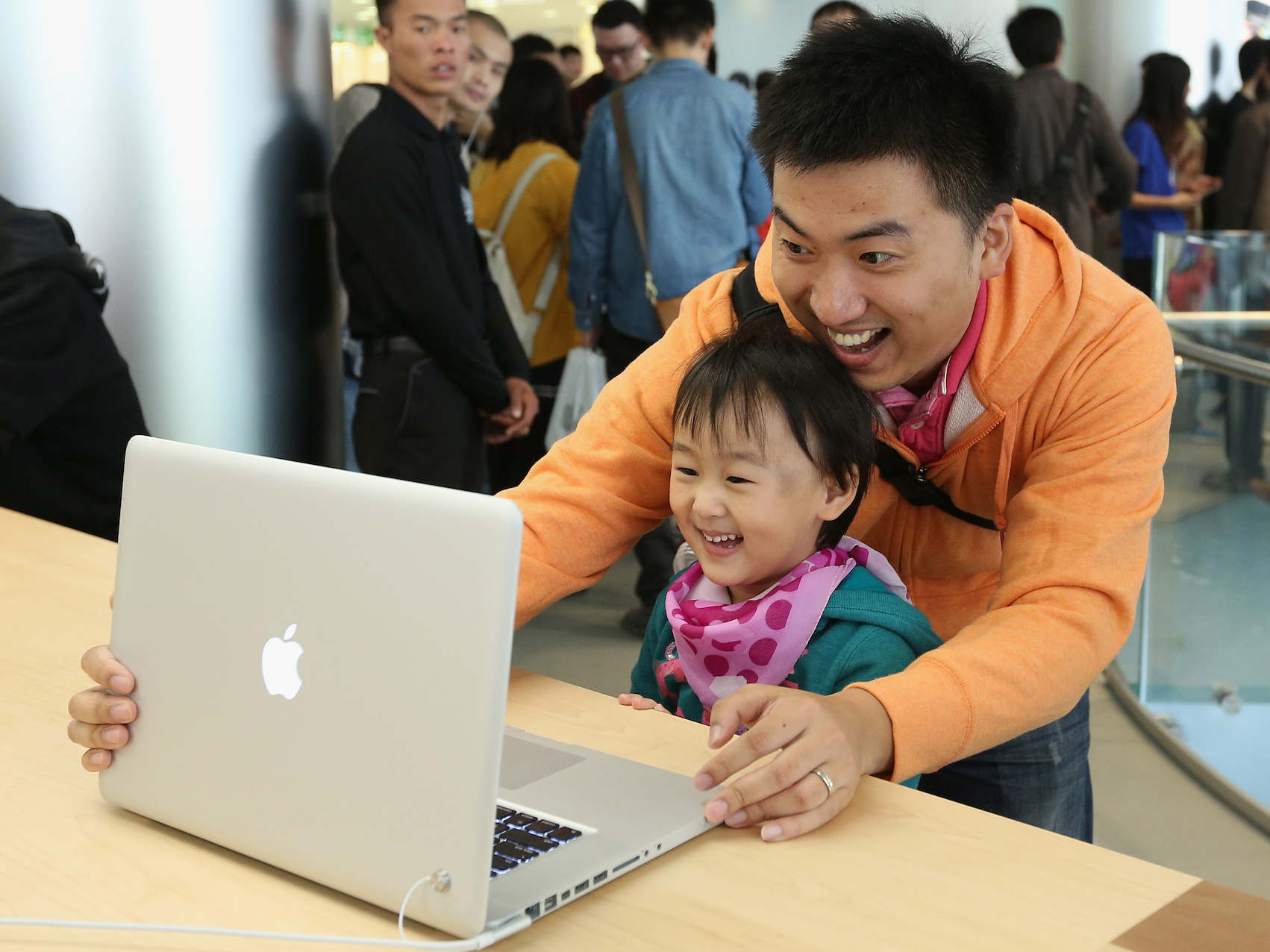- Apple’s Mac computers are easy to set up and start using, but there are tons of hidden tricks that only power users know about.
- Apple has added useful tricks to every Mac, like an easy way to organize your desktop, a simple way to find your cursor, and even a built-in thesaurus.
- Here are 26 tricks to help you speed up your Mac usage.
Steve Jobs may have been obsessed with making Macs super-simple to use – but some of the best Mac tips and tricks aren’t always obvious to the everyday user.
From keyboard shortcuts to hidden tools, Macs are full of features that will help you work more quickly and easily.
So whether you’re a Mac newbie or you’re just coming back from a long Windows vacation, here are 24 handy, not-totally-obvious tricks to help you get the most out of your Mac.
Jeff Dunn contributed to an earlier version of this post.
1. The simplest and most common way to speed up your Mac usage is to take advantage of Spotlight.

Get there by hitting Command + Space, and you can quickly find files, open apps, search the web, and make system-wide searches.
2. You can also use Spotlight as a calculator, or have it make currency conversions.

3. If you ever lose your mouse in a sea of windows onscreen, just shake it — the cursor will automatically enlarge.

4. Control + Alt + Delete doesn't work on Mac — instead, hit Command + Option + Escape to shut tasks down the hard way.

Using this trick will be a bit faster than right-clicking on each troublesome app yourself.
5. Most people delete files by manually dragging each file to the little Trash icon. If you want to go a little faster, though, just select a file, and hit Command + Delete.
6. Taking a screenshot on Mac is cleaner than it is on Windows. At any point, hit Command + Shift + 3 to capture the whole screen.
Command + Shift + 4 will capture a custom portion of the display.
7. You can move windows without bringing them to the foreground by holding Command as you drag it around.
8. You can change which apps load whenever you boot up your Mac.

Go to System Preferences > Users & Groups > Login Items, then add, check, and uncheck whatever you want to prioritize.
9. Whenever you need an accent mark (or related foreign character), just hold down the appropriate letter, and a list of relevant options will pop up.

10. Hitting Fn + F5 as you're typing something will give you a list of similar words right then and there.

11. If you use Bluetooth headphones with your Mac, there's an easy way to make sure music doesn't accidentally blare out of your computer speakers.

Go to System Preferences > Sound and check "show sound in menu bar."
You can then change the volume from said menu bar, and hold Option while clicking on the icon to quickly change the source.
12. Speaking of the menu bar: It's a powerful tool, but it does eat up screen space. If you want that space back, you can make it so the menu bar only shows up when you scroll toward it.

To do so, go to System Preferences > General, then click "Automatically hide and show the menu bar."
13. If you do keep the menu bar around, though, you can rearrange the icons within it by holding Command and dragging them around.

You can also use this to remove certain icons off the menu bar completely.
14. If you're working on a few things at once, you can look at them in a cleaner, split-view layout by holding down the rightmost (or green) button at the top of a given window.

15. This isn't for everyone, but Apple's "Hot Corners" setting lets you do things like clear all the windows off your desktop, open Mission Control, or put your display to sleep just by moving your mouse to a certain corner of the page.

You can experiment to see if it works for you by going to System Preferences > Mission Control, and selecting "Hot Corners..." at the bottom.
16. This isn't necessarily a pro tip, but generally speaking, don't sleep on Preview. Apple's built-in image editor is one of the most under-appreciated aspects of macOS.

Preview lets you resize, annotate, or change the file type of an image. Plus, you can use it to import a digital copy of your signature to easily sign documents.
17. Along those same lines, take advantage of Apple's QuickTime Player.

QuickTime Player lets you record audio or video that's playing on your screen, so you don't need to download any third-party software.
18. If you want to adjust your Mac's volume — but only by a little bit — hold Shift + Option as you hit the Volume Up or Down buttons.

This will change the volume in smaller increments. You can get similarly granular control with your screen's brightness, too.
19. Holding down Option + Shift while you resize a window will cause the whole thing grow and shrink proportionally at once.

20. In Finder, you can rename files and photos in bulk, rather than changing each one manually.

Just highlight what you need, right click, select "Rename [X] items...", and enter your new info into the naming tool that pops up.
21. You can also create custom keyboard shortcuts for certain apps.

Go to System Preferences > Keyboard > Shortcuts, click the "+" icon to add an app, then add your shortcut function and corresponding key-press from there.
22. Last year's MacOS update put Apple's Siri voice assistant on the desktop. It's a little awkward to talk to your computer in public, but it works for voice searching the web, finding photos, or looking through files and messages.

You can find Siri in the dock or menu bar.
23. MacOS now has a picture-in-picture mode. It only works with Safari, and not every video site supports it, but when it works, it can help maximize your space.

For sites like YouTube, you may have hold down the Control key, then double-click inside the video to see the "Enter Picture-in-Picture" option.
24. Thanks to the latest Mac OS software update, you can now switch your Mac to "dark mode," which turns the menu bar, finder window, and much more to a dark gray color.

To switch to dark mode, go to System Preferences > General > Dark.
25. Another new feature is Stacks, which lets you organize your desktop files by category — i.e. all screenshots will be automatically grouped in a folder, all PDFs will be put together, etc.

To start using Stacks, go to your Finder, click View, and then click Use Stacks.
BONUS: There are a few must-have keyboard shortcuts for Mac users that will switch between tabs or windows without using your mouse.

To switch between applications: Command + Tab
To switch between multiple windows of the same application: Command + ~
To switch between tabs in the same browser window, there are actually two ways:
1. Command + Option + forward/back arrows
2. Control + Tab to move forward through tabs, Control + Tab + Shift to move backward through tabs

